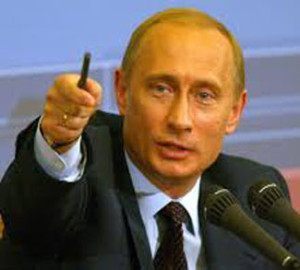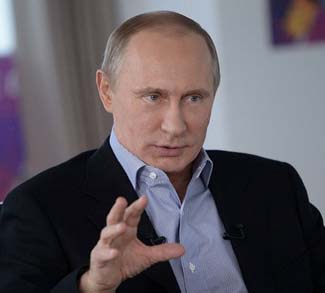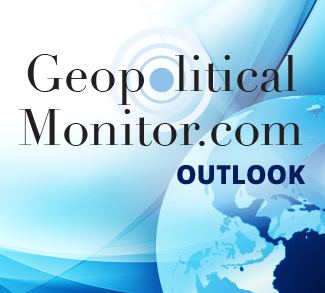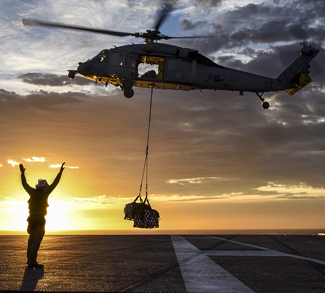Vladimir Putin’s speech on March 18 has opened a new phase in the US-with-EU-against-Russia standoff on Ukraine. On one hand critical of both the United States (disrespect of international law) and the EU (amateurish approach towards Ukrainian issues), on the other hand the Russian president appeared willing to ease simmering tensions. The time of diplomacy seems to have come. Russia is getting ready for a comprehensive dialogue with firstly the United States and then the EU on Ukraine but, quite likely as well, on the more global issue of the “Western” self-proclaimed right to intervene in the domestic affairs of sovereign countries. Tellingly Putin’s speech follows Russian Foreign Minister Sergei Lavrov’s first diplomatic step of March 17 when he proposed essentially the federalization of Ukraine.
Russian recognition of Crimea’s independence on March 18 and Crimea’s integration into the Russian federation the day after reinforce the Kremlin’ starting position in upcoming negotiations. As of March 2, when the Council of Federation authorized President Putin to use force in Crimea, Russia was actually securing its minimum position which is absolutely not negotiable, in any case – its continuous military presence in Sevastopol and a specific status of Crimea within Ukraine guaranteeing cultural and political rights of local Russian ethnic population. Having taken this pre-negotiation step however, Russian authorities do not think that they have provoked the crisis. They are of course aware of having escalated the tensions but they see recent events as an answer to Western incompetence and mismanagement, conscious or not, of the Maidan political crisis.
In Russian perceptions, the military threat and recognition moves have been triggered essentially by the non-implementation of the 21 February agreement, signed by President Yanukovych and the opposition under Polish, French, and German supervision, those powers having then exerted a useful influence on the three main opposition leaders. Subsequently, the quick and forced departure of president Yanukovych from power is considered in Moscow as a betrayal of this agreement by the same Western powers who proved unable or unwilling to prevent the opposition from taking power from the Yanukovych presidency. Arsenyi Yatsenyuk’s decision afterwards to prepare the cancellation of Russian language as an official language in Ukraine only added fuel on fire. This in Russian understanding was a clear provocation, almost a declaration of war, that no one in Moscow believes it could have been decided without previous approval from “Western” supporters of the new government.
Russia’s strategic take
The new rulers of Ukraine, with US and EU benediction, destroyed a fragile but enduring balance of interests between the Russian and the European-oriented parts of Ukraine. That balance was guaranteed by a feeble but existing democratic process. The Kremlin interpreted the Maidan victory as a non-democratic change, hence more risky for Russian interests in Ukraine. In this perspective, Yanukovych absolutely does not matter for Russia. What matters is the reestablishment of sustainable checks and balances in Ukraine, for which Russian communities in the East and in Crimea are entitled to fight for with Russian support. Interestingly, Vitaly Klitshko is quite neutrally appreciated by the Russian decision-makers. They see him as a still junior politician. But since he and his movement do not take part into the current Kiev government, he may appear as someone with whom a deal is possible, even a compromise figure. His discretion today is seen in Moscow as the United States having imposed their candidate, Arseniy Yatsenyuk against Angela Merkel’s one, Klitshko.
Politics prevails over economics
In Putin’s eyes, the negative effects on Russian economic interests abroad are of secondary importance next to Russia’s political priorities in Ukraine. Gazprom losing market shares in Europe or South Stream being delayed does not fit within the Kremlin’s calculations. However, the Russian government appears more concerned by negative domestic impact. Former but still influential finance minister Alexei Kudrin has tellingly reacted on the subject, pointing to the economic dangers of a Russia’s complete take over of Ukraine. The near $500 billion dollars in a reserve fund cannot solve all problems.
NATO involvement in Ukraine could provoke a full-scale Russian military intervention. In Russian understanding, there must be a clear distinction made between Crimea and eastern Ukraine. These are two separate issues. Most Russians today believe that Crimea belongs to Russia, whereas eastern Ukraine must (or can) remain in Ukraine under present borders. Russia seeks to make Crimea a new frozen conflict in Europe and to negotiate with the West so that the rest of Ukraine (without Crimea) remains in a reestablished balance between Europe and Russia. It is thus very unlikely in today’s configuration that Russian armies would invade eastern Ukraine; that is, as long as NATO remains outside the equation.




